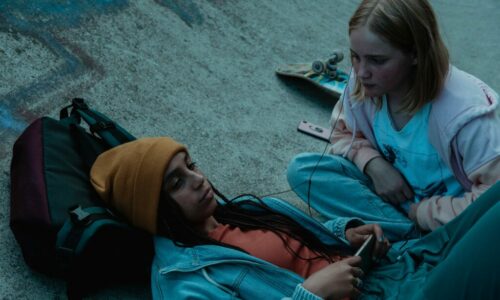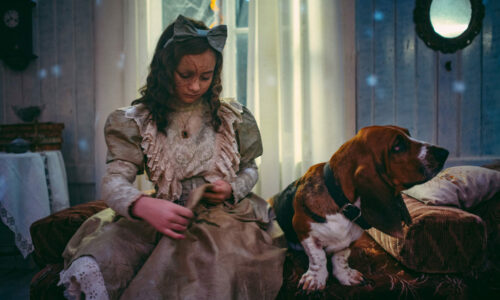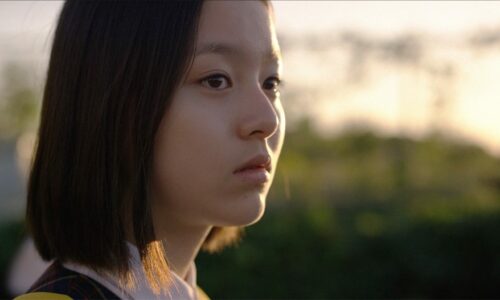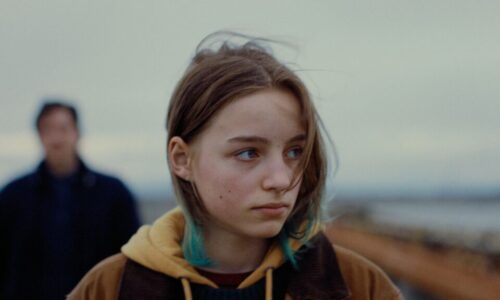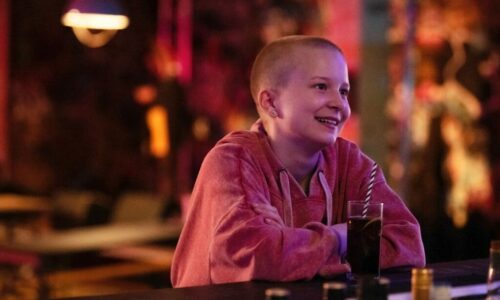Title: Comedy Queen/ Winner of the Crystal Bear for the best feature film of the Children’s Jury.
The mother of 12-year-old Sasha (Sigrid Johnson) took her own life after a severe depression and since then she has lived alone with her father, who suffers greatly. Often, when he thinks Sasha is not around, he sits in a corner crying and huddled together, but she knows about the situation and tries to find her own way of coping with her grief. She herself says “Mom, you were always crying. I refuse to cry.”.
Humor could certainly help here so that her father finally laughs again and she creates a survival list for herself with mistakes of her mother that she does not want to commit, because from her point of view this led to the suicide of her mother. No long hair and therefore not look like her mother, never read books again because her mother read a lot, not have to take care of any living creature (related to her own existence as a daughter) and become a comedy queen. The hair cutting is done quite quickly, although daddy’s hair trimmer doesn’t survive that. Getting rid of all her mother’s books also went off without a hitch, but when it came to “reading books” at school, Sasha probably realized that some of the items on her list might not be too easy to implement.
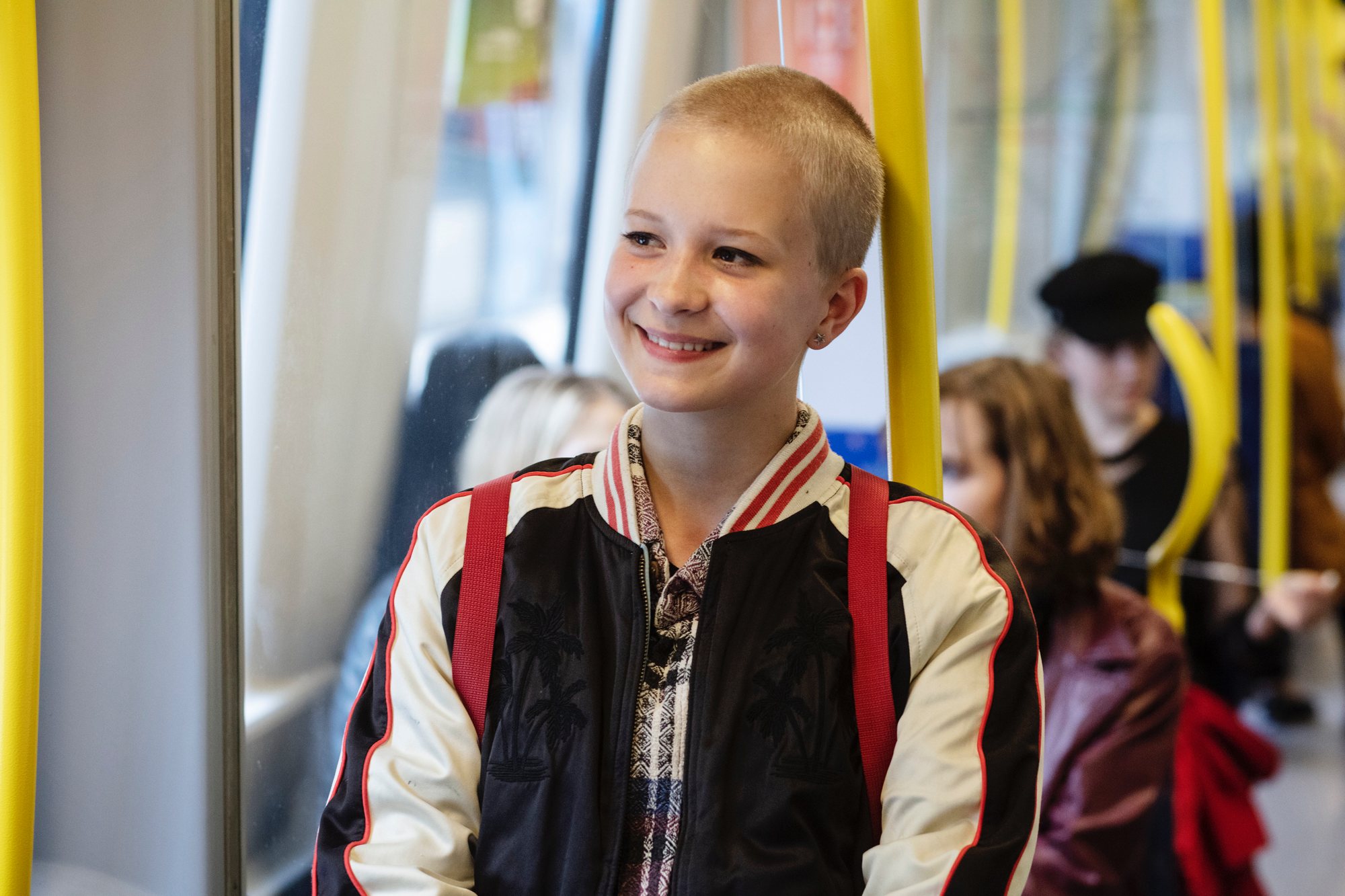
She had a somewhat more serious conflict when, for her 13th birthday, an eternal wish of the girl is implemented by her father, a dog of her own. For a small moment she had shown joy, but then she remembers the point “Do not care for any living creatures”, immediately puts it into practice and leaves behind perplexed faces, because no one from the family has expected this radical change of heart.
Of course, everyone in Sasha’s immediate environment is trying to make the best of the situation. Especially her best friend Märta (Ellen Taure) is very empathetic, but also her uncle, who owns a large bar with a stage, stands by her and encourages her to pursue her goal of becoming a comedy queen. When Sasha is given the task of giving a lecture about the earth at school, this encourages her to keep writing new texts for a very unusual presentation. With full verve she then appears in front of the class and tries to pull off her specially developed program, but this does not meet with the greatest approval from the students, because her jokes just don’t go down well. Her world shatters at the latest at the moment when two classmates make fun of Sasha’s performance after class. Once again it is her brother who is able to build her up again. He has arranged an appointment for her with a popular cabaret artist and the two promise Sasha that she will get 3 minutes of the performance time. This brings Sasha closer to her last item on her list to become a real comedy queen.
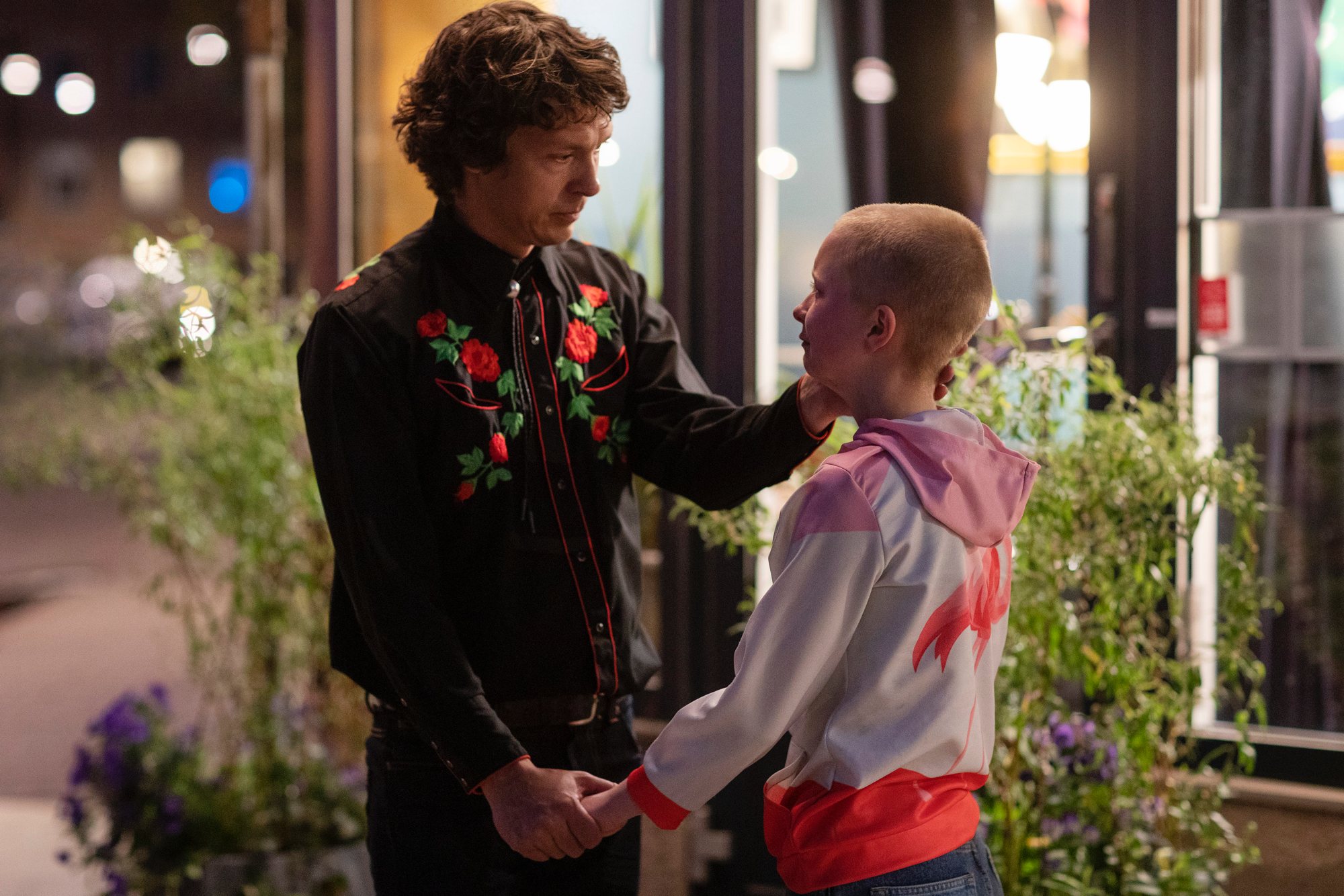
Conclusion:
Family-oriented films from Sweden I appreciate very much for some years, because they are often very close to family life in a very special way and they have a very sensitive way to deal with heavy topics. With Comedy Queen it’s not completely different, but I found some parts too light-footed. For example, there is the scene about her haircut. When her father sees the dilemma, there is not a single serious word from him, and all the other people close to her are also enthusiastic about this radical change. There is not a single moment of holding one’s breath or an “oh”. There is simply smiling, patting and moving on. Even at school, most kids take it as if it were the most normal thing in the world, only two classmates, who also fit into a cliché drawer like a fist on the eye, question the new look and laugh at Sasha. Now you can assume they all do it out of pure consideration because of the loss, but the whole thing then just pulls like a thread through the story. Also the jokes don’t go down well with many, but no one says “Maybe try something else” or “Let’s try something”, as if they were afraid of Sasha’s reactions and that doesn’t really fit with the basic idea of portraying this person as a supposedly strong character who tries to cover up everything. All in all, I only remembered two scenes that really moved me in the film, and there could have been more of them, with such a touching story. Once was shown as a flashback as Sasha (presumably) on the way to school from the death of her mother has learned and at the end it was then again emotional and that has truly not harmed the film but clearly upgraded.
Actors:
Sigrid Johnson (Sasha)
Ellen Taure (Märta)
Oscar Töringe (Abbe)
Iggy Malmborg (Ossie)
Adam Daho (John)
Daiken Okudaira (Sota)
Director:
Sanna Lenken
About the movie:
https://www.berlinale.de/de/programm/programm/detail.html?film_id=202209013
